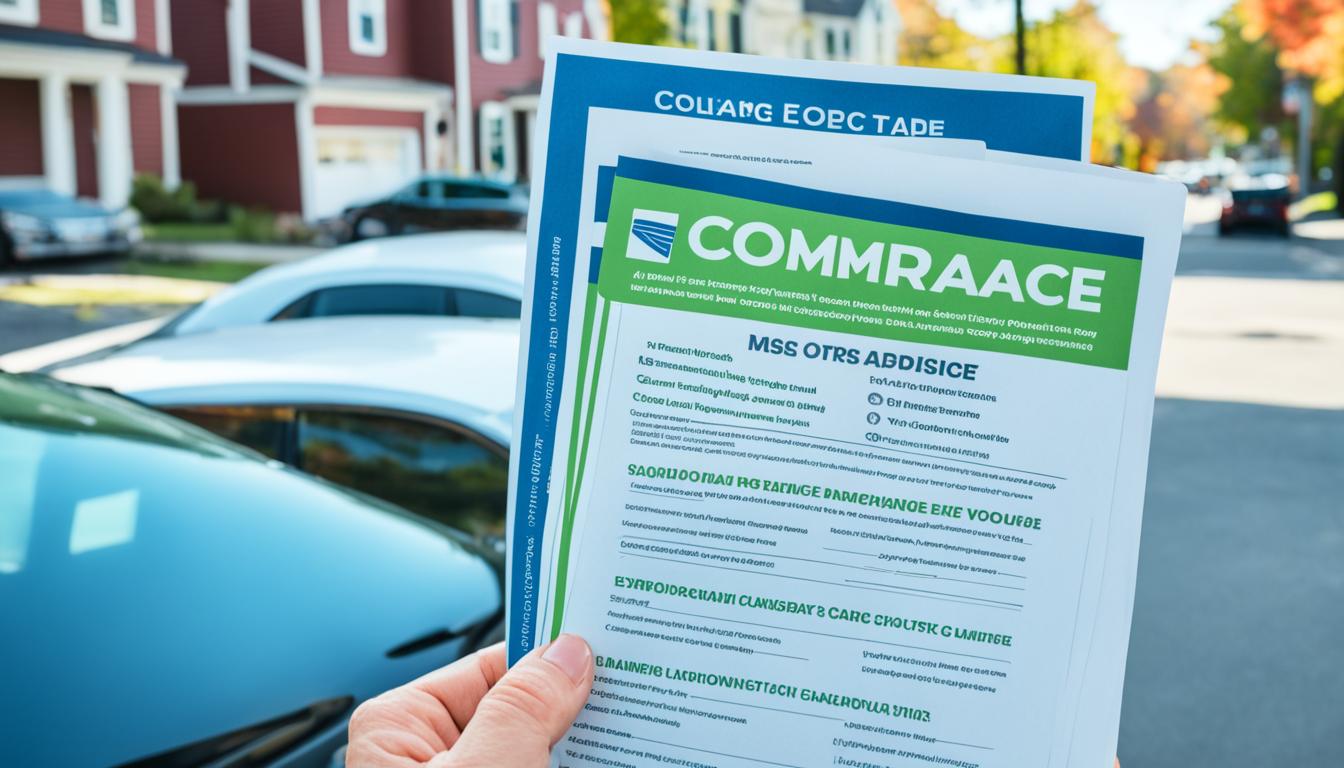Transitions about Tips for Changing Car Insurance in Massachusetts for Better Coverage
When it comes to changing car insurance companies in Massachusetts, it’s important to understand that it’s not just about finding a new provider but also about securing better coverage options tailored to your needs. Many people are unaware of the benefits of shopping around for auto insurance, with only 28% of Americans regularly doing so, according to a 2021 NerdWallet study. However, by following a few essential tips, you can make the transition as smooth as possible while potentially saving money.
Switching car insurance companies may seem like a daunting task, but with the right approach, it can be a straightforward process. Here’s what you need to do:
How to Switch Car Insurance Companies
1. Compare quotes from at least three insurers: By gathering quotes from multiple companies, you’ll ensure you’re getting the best rates and policy features.
2. Research potential new insurers: Look into the reputation and customer service of the companies you’re considering to avoid any unpleasant surprises down the line.
3. Contact your current insurer: See if they can match or improve upon the lower offers from other companies. If not, request a policy cancellation in writing and find out about any possible refunds or cancellation fees.
4. Avoid coverage gaps: Make sure there is no lapse in coverage when switching insurers to avoid paying higher rates or penalties. Coordinate the start of your new policy with the cancellation of your old one.
5. Update your information: Don’t forget to update your ID cards and notify your leasing company or lender of the switch to ensure a smooth transition.
When to Switch Car Insurance Companies
While you can switch car insurance companies at any time, certain situations may indicate that it’s the right moment for a change. Consider switching if you’re experiencing poor customer service, planning to move, adding a new driver to your policy, buying or adding a new car, or witnessing a significant increase or decrease in your credit score. Even if none of these situations apply to you, it’s always a good idea to shop around to ensure you’re getting the best deal.
Switching Car Insurance When Moving States
If you’re planning to move to a different state, it’s advisable to switch car insurance companies. Insurance agents are typically licensed in only one state, and each state has its own laws and coverage requirements. Follow these steps:
1. Check with your current insurer: See if they offer coverage in your new state. If not, it’s time to start exploring other options.
2. Understand the requirements: Visit the Department of Motor Vehicles website for your new state to familiarize yourself with the registration and insurance requirements.
3. Compare quotes: Obtain quotes from different insurance companies and purchase a new policy that meets the requirements of your new state.
4. Register your vehicle and obtain a new driver’s license: Fulfill the necessary steps to drive legally in your new home state.
5. Cancel your old policy: Notify your former insurer and make sure to update your address.
How Often Can You Switch Car Insurance?
There is no specific limit on how often you can switch car insurance companies. The choice of when to switch is entirely up to you. However, keep in mind that frequent switching may result in losing out on benefits offered to loyal customers. It’s recommended to compare car insurance quotes every six to twelve months and switch when it makes financial sense or when there are significant changes in your circumstances.
Conclusion
Changing car insurance companies may seem like a daunting task, but with the right information and approach, it can be a smooth process. By comparing quotes, researching new insurers, communicating with your current insurer, avoiding coverage gaps, and keeping your information updated, you can ensure you’re getting the best deal and coverage for your car insurance. Stay proactive and regularly review your options to make sure you have the right coverage for your needs.
Key Takeaways:
- Compare quotes from multiple insurers to get the best rates and policy features.
- Research new insurers to ensure they have a good reputation and excellent customer service.
- Contact your current insurer to see if they can match or improve upon lower offers, and if not, request a policy cancellation.
- Avoid coverage gaps by coordinating the start of your new policy with the cancellation of your old one.
- Update your ID cards and inform your leasing company or lender of the switch.
How to Switch Car Insurance Companies
To switch car insurance companies in Massachusetts, it’s important to follow a few steps that will ensure a smooth transition and help you find the best coverage for your needs. Here’s a guide on how to switch your car insurance provider:
- Compare Quotes: Start by comparing quotes from at least three different insurers. This will help you ensure that you’re getting the best rates and policy features available. Consider factors such as deductible amounts, coverage limits, and any additional benefits or discounts offered.
- Research Potential Insurers: Before making a decision, take the time to research the reputation and customer service of each potential new insurer. Look for customer reviews and ratings to get an idea of their level of satisfaction and reliability.
- Contact Your Current Insurer: Once you’ve gathered quotes and done your research, contact your current insurer. Inform them about the lower offers you’ve received from other companies and see if they can match or improve upon them. This step is important as it may save you the hassle of switching if your current insurer can match or beat the offers.
- Request a Policy Cancellation: If your current insurer is unable to match the offers or provide better rates, it’s time to request a policy cancellation. Do this in writing to have a record of the cancellation request. Inquire about any possible refunds or cancellation fees that may apply.
- Avoid Coverage Gaps: It’s essential to ensure that there are no coverage gaps when switching insurers. Arrange for your new policy to start on the same day or before your current policy ends to avoid any lapses in coverage. Otherwise, you may risk paying higher rates or incurring penalties.
- Update Your ID Cards and Notify Leasing Company or Lender: As you make the switch, don’t forget to update your ID cards with the new insurer’s information. Additionally, inform your leasing company or lender about the change in insurance providers. This step is crucial to keep all parties informed and maintain compliance with any contractual obligations.
Note: Always refer to relevant laws, regulations, and contracts when changing car insurance companies in Massachusetts to ensure compliance and avoid any legal issues.
When to Switch Car Insurance Companies
While you can switch car insurance companies at any time, there are optimal moments that may prompt a change in providers. Here are a few reasons why you might consider switching:
- Poor Customer Service: If you’re experiencing subpar customer service from your current insurer, it may be a sign that it’s time to explore other options. Good customer service is crucial to ensure a smooth claims process and timely assistance.
- Planning to Move: Relocating to a new area can significantly impact your car insurance rates. It’s best to research insurance providers in your new location to find the most competitive rates and coverage options.
- Adding a New Driver: When adding a new driver to your policy, it’s essential to compare rates from different insurers. Some companies may offer more favorable rates for new drivers, resulting in potential savings for your household.
- Buying or Adding a New Car: Purchasing a new car or adding a vehicle to your existing policy is an opportune time to shop around for better rates. Different insurers may offer varying premiums based on factors such as the make, model, and safety features of your vehicle.
- Credit Score Changes: If your credit score significantly improves or worsens, it can affect your car insurance rates. It’s worth exploring options with other insurers if you experience a substantial increase or decrease in your credit score.
Even if you’re not currently encountering any of these situations, it’s still recommend to compare rates at least once a year. Some insurance companies may increase premiums for loyal customers, making it beneficial to explore other providers. By conducting regular rate comparisons, you can ensure that you’re getting the best deal and optimal coverage for your auto insurance needs.

Switching Car Insurance When Moving States
If you’re planning to move to a different state, you’ll likely need to switch car insurance companies to comply with new laws and coverage requirements. Insurance agents are typically licensed only in one state, making it necessary to find a new insurer. Here’s a step-by-step guide on how to switch auto insurance after moving:
- Contact your current insurance company: Start by reaching out to your current insurer to see if they offer coverage in your new state. They may be able to transfer your policy or provide recommendations for insurers that offer coverage in your new location.
- Research the requirements: Visit the website of the Department of Motor Vehicles for your new state to understand the specific registration and insurance requirements. This will help you ensure that your new policy meets the legal standards and avoids any fines or penalties.
- Compare quotes: Obtain quotes from different insurance companies in your new state. Comparing rates, coverage options, and customer reviews will help you find the best policy that meets your needs and budget.
- Purchase a new policy: Once you’ve selected an insurance company, purchase a new policy that aligns with the requirements of your new state and provides the coverage you need. Ensure there is no gap in coverage between the cancellation of your old policy and the start of your new one.
- Register your vehicle: After purchasing a new policy, register your vehicle in your new state. Follow the necessary procedures outlined by the Department of Motor Vehicles to ensure your vehicle is legally registered and insured.
- Obtain a new driver’s license: Visit the local Department of Motor Vehicles to obtain a new driver’s license for your new state. This step is crucial to ensure that you are in compliance with the state’s laws and can legally drive in your new home state.
- Cancel your old policy: Once you have secured a new policy and registered your vehicle, cancel your old policy with your former insurer. Make sure to update your address with them as well.
To make the process even smoother, consult with your insurance agent or company throughout the transition. They can provide guidance and answer any questions you may have regarding changing car insurance when moving states.
“Switching car insurance when moving states can be a bit complicated due to different regulations and requirements. It’s essential to research and follow the necessary steps to ensure you have continuous coverage in your new location.” – John Smith, Insurance Expert
By following these steps, you can transition smoothly and ensure that you have the necessary car insurance coverage as required by your new state. Moving to a new state can be stressful enough, so it’s important to take care of your car insurance needs to give you peace of mind on the road.

How Often Can You Switch Car Insurance?
When it comes to car insurance, you may be wondering how often you can switch insurance companies. The frequency of switching car insurance is entirely up to you – there is no set limit. You have the freedom to switch insurers whenever you feel it is necessary or when you believe it will be beneficial for your coverage and rates.
However, it’s important to keep in mind that frequent switching may have some implications. While switching allows you to explore better options and potentially save money, it may result in losing out on benefits offered to loyal customers. Insurance companies often provide incentives and rewards to customers who stay with them for an extended period of time, such as discounts or accident forgiveness programs.
It’s a good practice to review your car insurance policy regularly and compare quotes from different insurers. Consider switching if it makes financial sense or when you experience significant changes in your circumstances, such as moving to a new state or buying a new car. By comparing car insurance quotes every six to twelve months, you can stay informed about the current market rates and make an informed decision about switching insurers.

Remember, the primary goal of switching car insurance is to ensure you have the right coverage at the best possible rates. By staying proactive, regularly evaluating your options, and making informed decisions, you can navigate the process of switching car insurance companies smoothly and secure the coverage that meets your needs.
Conclusion
Changing car insurance in Massachusetts doesn’t have to be a daunting task. By following the tips provided in this article, you can navigate the process more easily and potentially find better coverage options that suit your needs.
One of the most important steps is to compare quotes from different insurers, as this ensures that you’re getting the best rates and policy features available. Additionally, conducting research on potential new insurers can help you avoid any unpleasant surprises regarding reputation and customer service.
Communication is key throughout the process. Reach out to your current insurer to see if they can match or improve upon lower offers from other companies. If that’s not the case, request a written policy cancellation and inquire about any refunds or cancellation fees.
Lastly, remember to avoid any coverage gaps and promptly update your information by obtaining updated ID cards and notifying your leasing company or lender of the switch. Regularly reviewing your insurance options can help you secure the best deal on your car insurance and protect your financial well-being.
